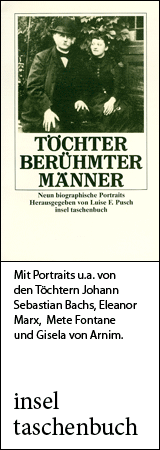THE EVENING NEWS!!! A RANT
THE EVENING NEWS!!!
A RANT
As a rule we like to watch the PBS Evening News. We have come to rely on Judy Woodruff’s perfectly pitched tone and narrative of the day's events, whether tragic, worrisome or – occasionally – cheering. And the informative, sensitively delivered reports and interviews of Jeffrey Brown and the rest of the crew help us digest the often complex material as easily as our tv dinners. But once in a while we stumble into a network version of the nightly news, and the difference is, well, like night and day.
For some years now we’ve complained, along with most everybody else, that cable and network news has become largely “infotainment,” a blend of celebrity gossip, human interest stories, and world and national events. One expects the local stations to feature stories of auto crashes and lost puppies, but the programs of CBS, NBC and ABC are not far behind. (Mercifully, we don’t receive CNN or FOX News.) In this year of political campaigning, the news has hit a new low, salivating over every outrageous, unchallenged utterance of one candidate and every misstep of the other, real or imagined. (You can tell whose side I’m on.) Luise Pusch has already given her views on this topic in her column “Humanizing Hillary“? Authenticity, Humanity And Paradoxical Demands In The U.S. Presidential Campaign.
But don’t get me started on election coverage. I want to talk about style, about how the news is presented. I’ve noticed increasingly that, in contrast to the dignified delivery of the PBS newscasters, who are content to rely on the inherent significance and interest value of their material, those on the national network (and presumably cable) stations seem convinced that they must perform like circus barkers to get and hold our attention. They shout each detail hysterically and gesture emphatically with both hands, often walking back and forth in front of the camera. Apparently, we must be grabbed by the throat, just as we are grabbed by the commercials through their increased volume and urgency.
In the last month or so, however, I’ve noticed yet a new wrinkle in the effort to assert importance. Instead of narrating an event using subject and verb, the newscasters increasingly rely on adjectives, especially present participles, to transform the story into a tableau, as it were, a verbal image that flashes in an eternal present before our eyes.
No longer do we hear the presenter tell us that “millions of Americans will watch the debate between Clinton and Trump.” Rather, it’s “Millions of Americans watching the debate….” Not: “Both candidates hope to avoid blunders,” but: “Both candidates hoping to avoid blunders.” And: “Our poll tonight showing a tight race.” Not: “The police are under intense pressure to release the video,” but: “Police under intense pressure to release the video.”
This trend is even more striking and seemingly illogical when a past event is rendered by the present participle: “Fernandez escaping Cuba as a teenager.” “Fernandez and two other men dying in a boat accident.” “His grandmother travelling from Cuba in 2013.” (All examples from ABC’s World News Tonight.)
An additional effect of this practice is to subordinate the adjectival or participial phrase and its contents to some presumed larger topic. The phrases serve as a sort of bullet list of relevant sub-points, sharply punctuated in a kind of telegram style.
This tactic is similar to newspaper headlines, which also stress the present-ness of past events to grab our attention. After the first debate the Boston Globe announced: “Clinton, Trump battle over pasts, policies, and character.” It is curious, that as the print media are increasingly abandoned for social media, television has moved toward precisely this traditional newspaper style.
I’m wondering whether anyone else has noticed this recent trend. I for one view it as part of the ineluctable slide of the t.v. news into the gutter.
Joey shouting at the television set, wondering where normal grammar has gone.
1 Kommentar
Nächster Eintrag: Eilenriede
Vorheriger Eintrag: Tending the Fire



23.10.2016 um 18:09 Uhr Elke Liebs
I absolutely agree from the depth of my heart. As time goes by, we have reduced our needs and desperately long for grammar and style and at least a faint scent of the beauty and comfort that (each) language offers free of charge. Otherwise it won’t take long and the rest is silence.